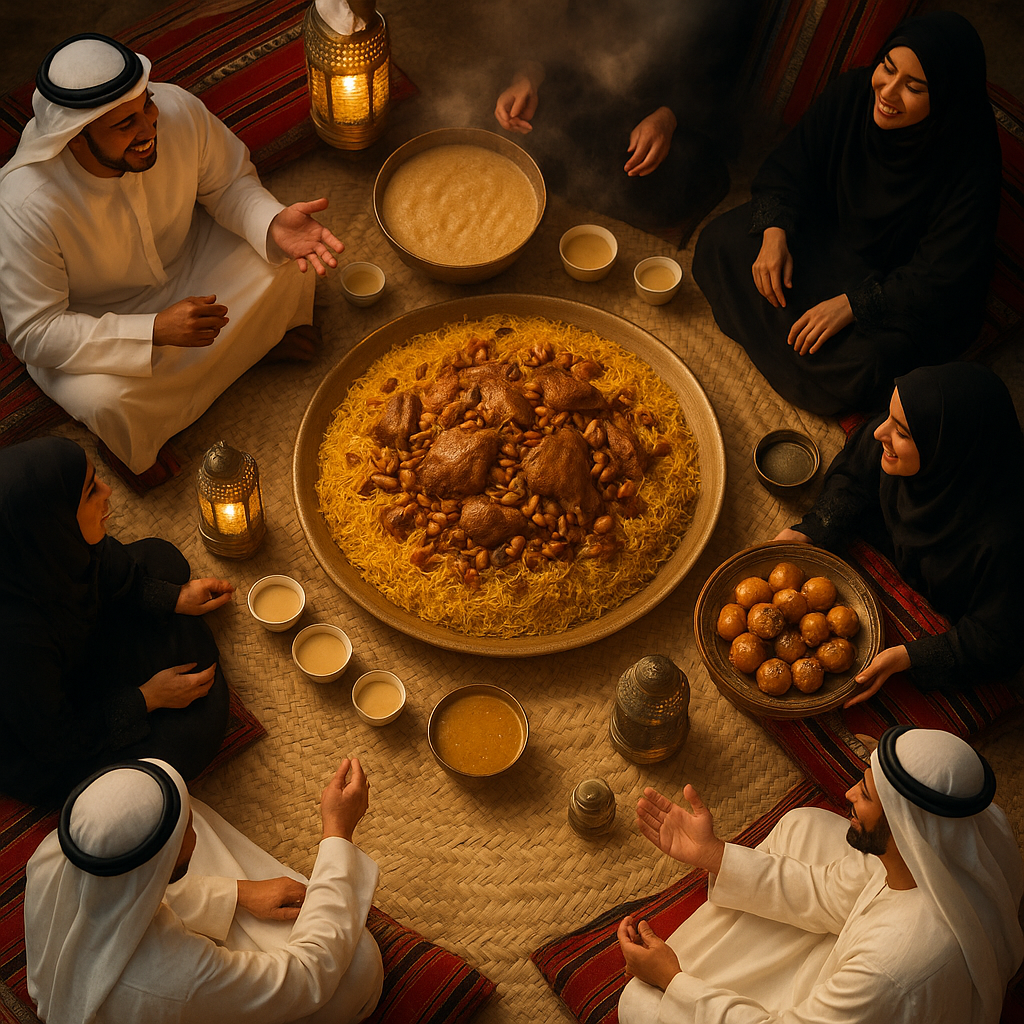“In the UAE, food is never just a meal — it is memory served on a plate.”
More Than Recipes, A Map of Identity
For Emiratis, traditional dishes like machboos, harees, and luqaimat are not just flavors — they are time capsules. Each bite carries the memory of ancestors who survived with little, celebrated with much, and passed down recipes as cultural inheritance.
Food is not prepared only to feed the body. It is crafted to bind families, strengthen friendships, and reaffirm belonging.
Machboos: The Dish of Unity
Machboos, fragrant with saffron, cardamom, and slow-cooked meat or fish, is the centerpiece of many Emirati gatherings.
-
It is served on large shared platters, reminding everyone: the table belongs to all.
-
Its spices trace trade routes that once connected the Gulf to India and beyond, telling a story of openness and exchange.
-
Every grain of rice carries both history and hospitality.
To eat machboos is to eat together.
Harees: Patience Made Edible
Harees, a slow-cooked porridge of wheat and meat, is simple yet profound. Cooked for hours until soft, it is often served during Ramadan or special occasions. Harees teaches a lesson: good things require patience.
It is a dish of comfort, reminding Emiratis of resilience in times when resources were scarce, yet hearts remained generous.
Luqaimat: Sweetness of Celebration
No Emirati gathering feels complete without luqaimat — golden dough balls drizzled with date syrup and sesame seeds. They are the taste of joy, often prepared during Ramadan nights, weddings, and festivals.
To share luqaimat is to share happiness, bite-sized and warm.
Why It Matters
Food in the UAE is more than sustenance. It is memory, belonging, and generosity made visible. When Emiratis cook, they are not just preparing meals — they are keeping heritage alive, one dish at a time.

